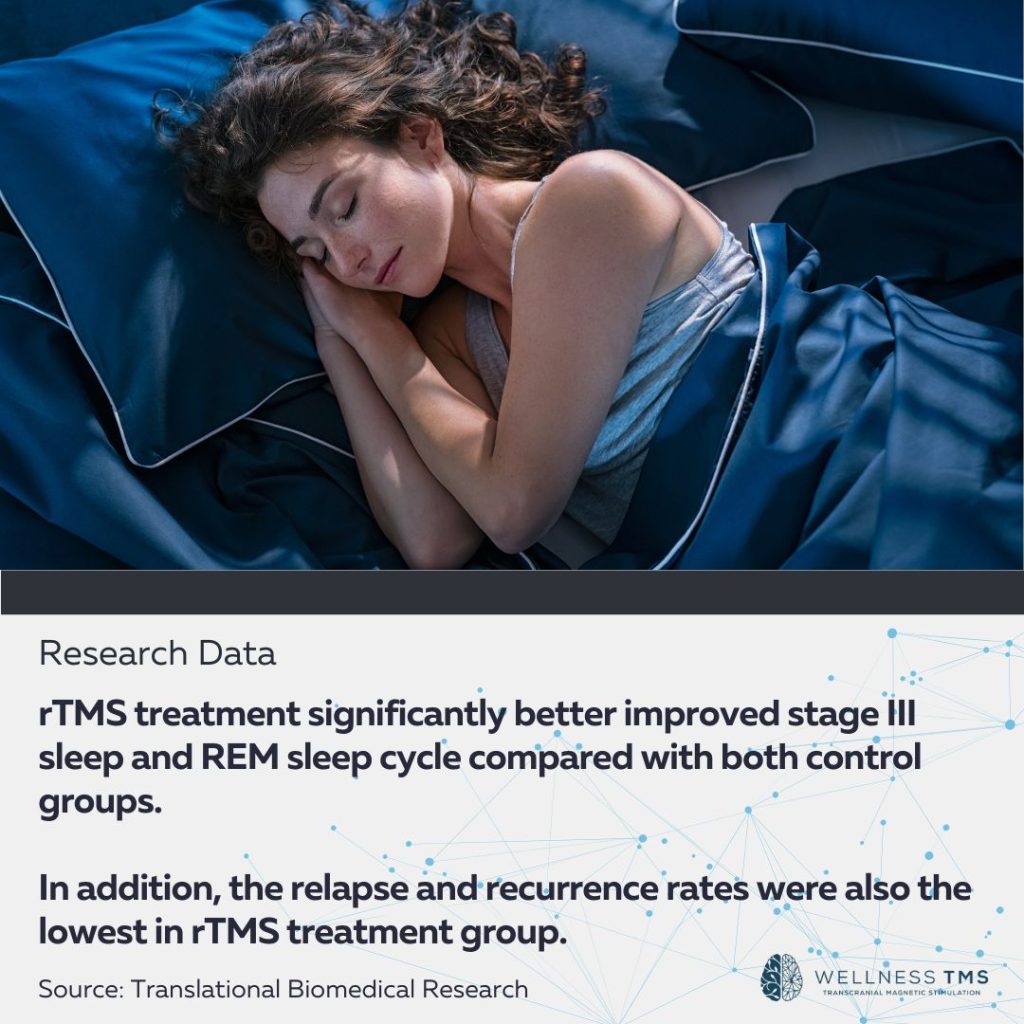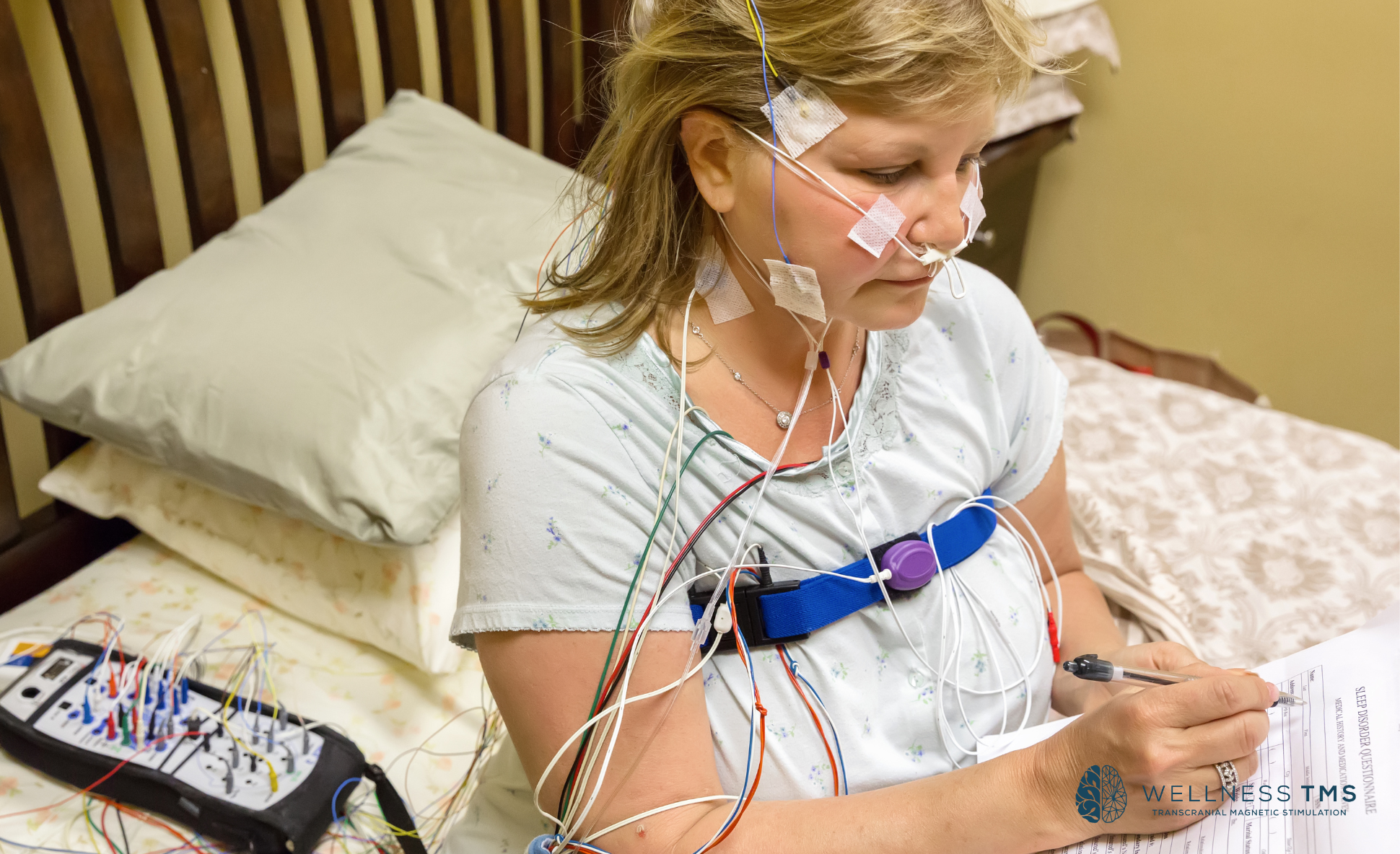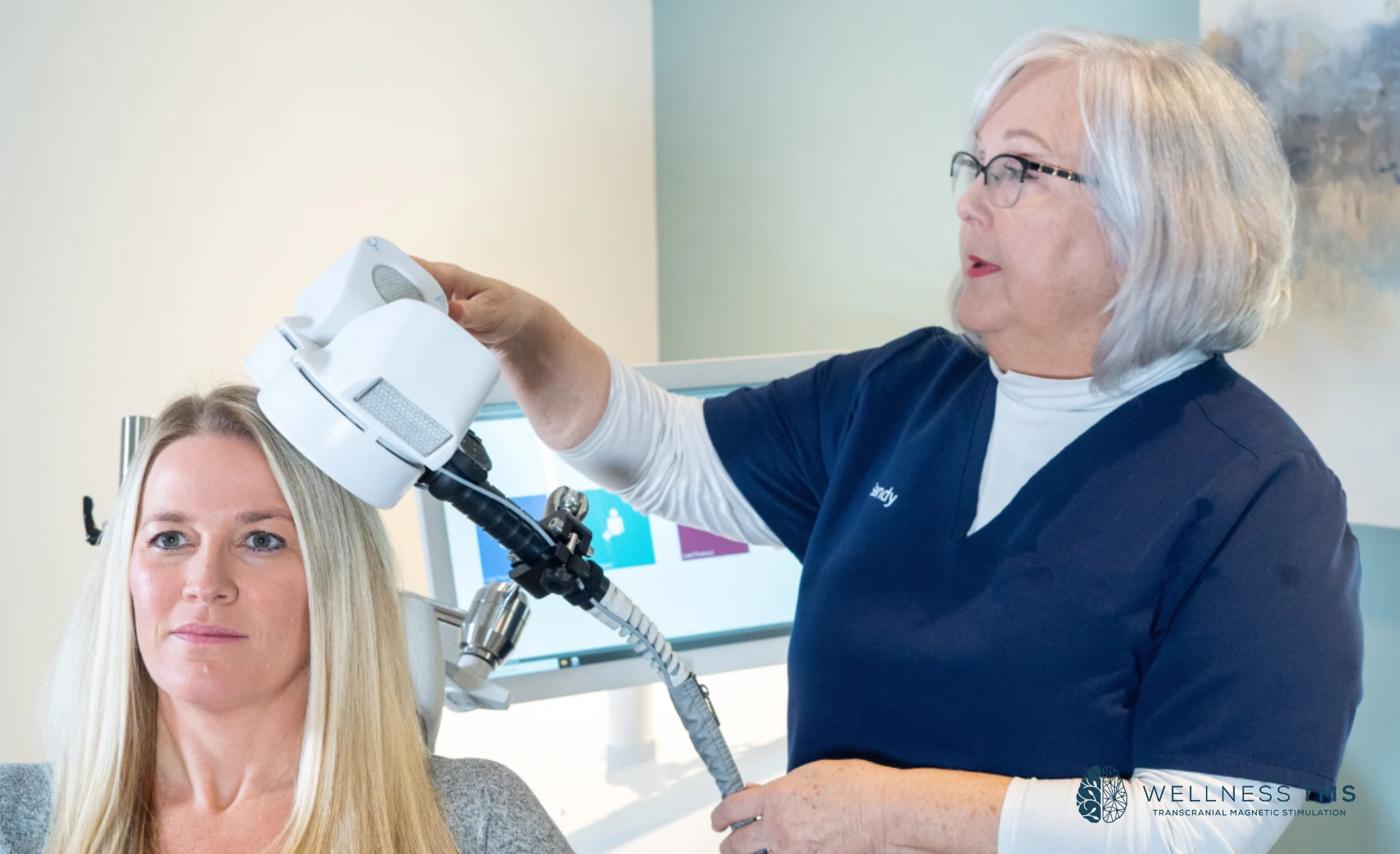Highlights:
- Expanding Treatment Beyond Depression: The article highlights how Transcranial Magnetic Stimulation (TMS), initially renowned for its effectiveness in treating depression, has shown potential in addressing various sleep disorders. This expansion of TMS application underscores its versatility in targeting different neurological conditions.
- Tailored Therapy at Wellness TMS: Wellness TMS emphasizes collaboration with patients to customize TMS therapy according to their specific needs and schedules. This personalized approach acknowledges the diverse circumstances of individuals seeking treatment for sleep disorders, potentially enhancing treatment adherence and outcomes.
- PrTMS: Advancing Sleep Disorder Treatment: The article introduces Personalized Repetitive Transcranial Magnetic Stimulation (PrTMS) as a cutting-edge approach to treating sleep disorders. By utilizing EEG analysis and neurocognitive tests to map brain activity and identify disruptions contributing to sleep disorders, PrTMS offers personalized treatment plans that target the root causes of sleep disturbances, potentially leading to improved sleep quality and overall well-being.
Transcranial magnetic stimulation (TMS) has become renowned for its efficacy in treating depression, yet its potential extends to addressing various sleep disorders. At Wellness TMS, we collaborate closely with patients to tailor TMS therapy to their specific needs and schedules. While traditional TMS typically spans a few weeks and is often covered by insurance, accelerated TMS methods cater to individuals with busy lifestyles or frequent travel, though typically not covered by insurance. Let’s delve into how TMS can alleviate sleep disorders.
In our brains, nerve cells transmit electrical messages crucial for regulating emotional responses and behaviors. However, disruptions in these signals can manifest in conditions like PTSD, depression, OCD, and eating disorders. TMS gained FDA clearance in 2008 for depression treatment, showing a success rate of 79% in recent studies. While FDA-approved for nicotine addiction in 2020 and OCD in 2022, TMS is also utilized off-label for insomnia.
Insomnia, often linked to depression or anxiety, presents as difficulty falling or staying asleep, affecting millions worldwide. TMS emerges as a promising option for insomnia treatment, especially when associated with co-morbid conditions. Its effectiveness hinges on the underlying cause, with TMS stimulating cortical neurons to reconfigure brain circuits and potentially offer relief.





